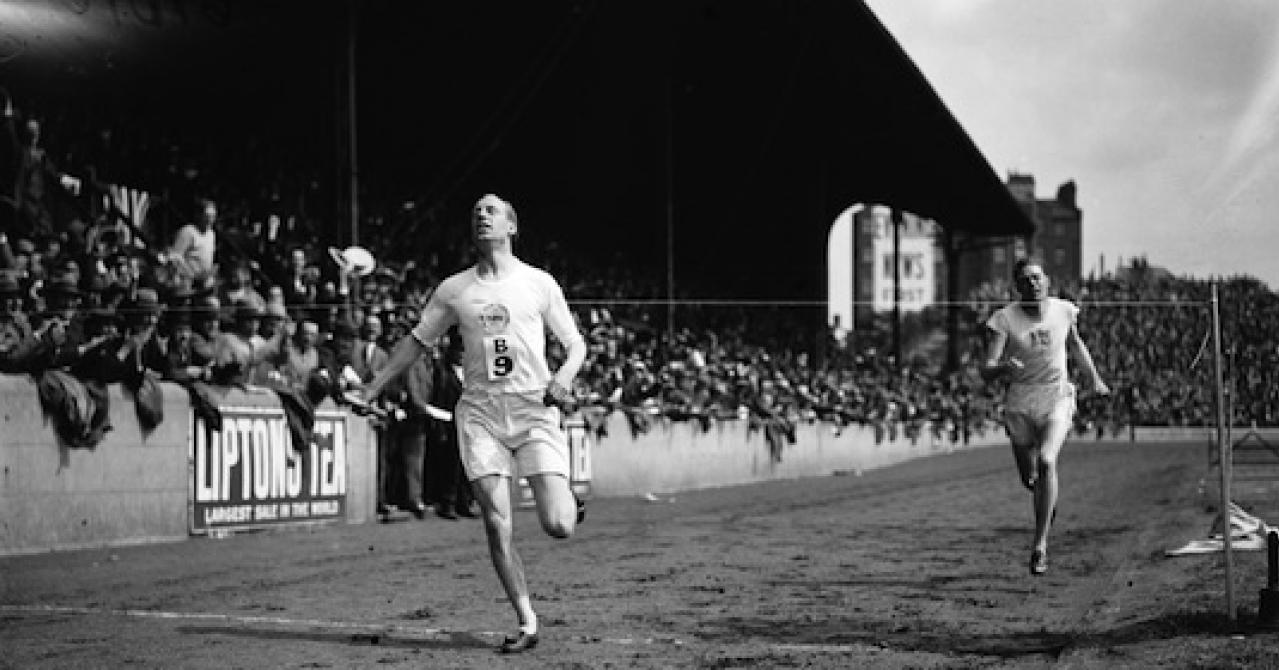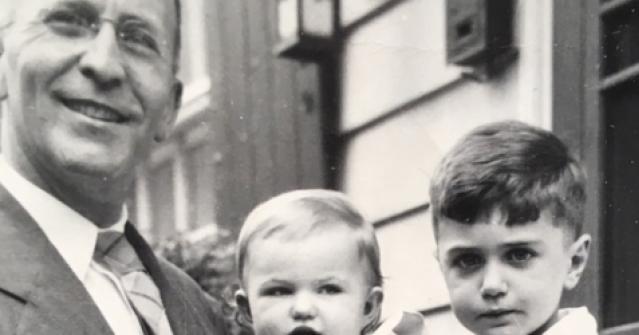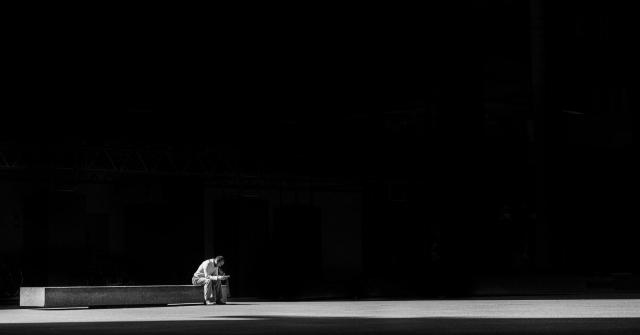
Eric Liddell's Lasting Olympic Impact on Chinese Culture
How often does a Chinese-born missionary to China become the subject of an academy award-winning movie? The people of China see Eric Liddell as their first Olympic gold medalist, even recently unveiling a statue of him. His daughter Patricia Liddell commented, "My father was multi-faceted, he didn't just appeal to religious people. He was born in China, he worked in China, he died in China. He's their Olympic hero." Duncan Hamilton poignantly commented, “In Chinese eyes, he is a true son of their country; he belongs to no one else.”
In Chariots of Fire, he is shown running for the glory of God in the 1924 Olympics. Eric commented, “I never prayed that I would win a race. I have of course prayed about the athletic meetings, asking that in this too, God might be glorified.” A leading sports reporter summed him up as ‘probably the most illustrious type of muscular Christianity ever known.’ Nicknamed the flying Scotsman, he famously said: “God made me fast, and when I run, I feel His pleasure.” When asked how he ran so quickly, he often said that he ran as fast as he could for the first half of a race, and then asked God to help him run even faster for the second half. Eric won so much gold and silver that his mother hid his trophies under her bed at night, in case of burglary.
Missionary families often make great sacrifices for the sake of the lost. Born in 1903 at Siao Chang on the Great Plain of Northern China, Eric and his older brother Robert were sent in 1912 to the Eltham missionary boarding school in London. While at Eltham, Eric earned the Blackheath Cup as the best athlete of his year, becoming the captain of both the cricket and rugby union teams. Eric did not see his mother again for seven years, and his dad for thirteen years. Since Eric only knew Chinese culture, he experienced enormous culture shock in his parents’ homeland of Scotland.
While earning a chemistry degree at the University of Edinburgh, he was not only a track and field runner, but also became an award-winning rugby player for the Scottish national team. Being painfully shy, Eric never could have imagined that he would become the most famous person in Scotland.
Chemistry Professor Neil Campbell at Edinburgh commented, “No athlete has ever made a bigger impact on people all around the world, and the description of him as ‘the most famous, the most popular, and best-loved athlete Scotland has ever produced’ is no exaggeration.” Dunky Wright, Scotland’s greatest long-distance runner, said of Eric: “he was without doubt the most glorious runner I have ever seen ...with such a high moral Christian character...”
Eric had a unique running style that coaches tried to cure without success. The New York Times noted that he seemed to do everything wrong. The Daily Mail sketched him in a cartoon as if he were a rubber contortionist. Throwing his head back, he swayed and rocked like an overloaded express train. Eric was compared to a startled deer, a windmill with its sails off kilter, a terrified ghost, and someone whose joints had never been oiled. Jack Moakley, the wisest and oldest of the American Olympic running team, said, “That lad Liddell’s an awful runner, but he’s got something. I think he’s got what it takes.”
It hurt Eric deeply when many called him a traitor for being unwilling to run on Sunday at the Olympics. His strong Christian convictions led him to refuse to work on Sundays, including winning gold medals. His stunning gold Olympic win in the 400 metres turned him from a national embarrassment to a celebrated hero. The closest parallel to his new fame was Beatlemania, complete with an actual Eric Liddell fan club.
For Eric, the 1924 Olympics was just a brief diversion on his way to serve as a missionary in China. Before he boarded the boat to China, enormous crowds came to hear him speak in churches. Over a thousand people had to be turned away sometimes because there was no more room.
Eric served in China as a missionary chemistry teacher from 1925 to 1943, first in Tientsin (Tainjin) and later in Siaochan. During a first furlough in 1932, he was ordained as a minister.
In 1941, the fighting between the Chinese and invading Japanese forces became so dangerous that he was forced to send his Canadian wife Florence and their three children back to Canada. Kissing his wife goodbye, he whispered in her ear ‘Those who love God never meet for the last time.’ The Sino-Japan War was often referred to as the ‘Forgotten War’ because so few foreigners took any interest in it. The Japanese occupiers did not allow Eric to hold church services with any more than ten people present. So Eric met nine people for afternoon tea, giving out copies of his sermon. These nine people then each met nine other people giving them copies of the sermon until everyone was reached. This became known as the Afternoon Tea Church.
The Japanese had sworn that before 1942 had ended, they would grant approval for anyone to leave. On March 12th 1943, the Japanese declared that no ‘enemies’ would be allowed to leave China. All British & American ‘enemies’ were to report to Weidendorf Internment Camp, the former Presbyterian Church compound, in the center of Shantung Province, four hundred miles southeast of Tientsin. The Japanese called it a Civilian Assembly Center. Some of the wealthy British business people on the way to the Internment camp brought along beach chairs, silver cutlery, and even a set of golf clubs. Over 1,000 missionaries were imprisoned by the Japanese, many of whom died. In 1943, Eric was sent to the Weixhan Internment Camp in modern-day Weifang, Shandong, with 1800 other prisoners, including 100 other missionarys’ children. While interned in this 150 by 200 yard camp, he helped the elderly, taught Bible classes at the camp school, arranged games, and taught science to the children, who referred to him as Uncle Eric. David J Michell, a child internee, remarked, “He had a smile for everyone.” He was the hardest worker in the internment camp. Sports Writer A.A. Thomson said of Eric: “During the worst period of his imprisonment, he was, through his courage and cheerfulness, a tower of strength and sanity to his fellow prisoners.” Sometimes he ran races against the Japanese guards in order to allow food and medicine to be smuggled in for the starving inmates.
Influenced by his missionary mentor Dr. E Stanley Jones, Eric wrote a book The Disciplines of the Christian Life. At that time, there was little written material available to instruct Chinese pastors. Eric was passionate about absolute surrender to the will of God. In Eric’s 1942 book Prayers for Daily Use, he wrote, “Obedience to God’s will is the secret of spiritual knowledge and insight. It is not willingness to know but willingness to do (obedience) God’s will that brings certainty.” His major sermon topics in the internment camp were the Sermon on the Mount and 1 Corinthians 13. In Eric’s booklet “The Sermon on the Mount for Sunday School Teachers”, he wrote “Meek is kind and gentle and fearless...Meek is love in the presence of wrong.”
One internee said, “He wasn’t a very good preacher, but he certainly had us all listening to him because his personality or his sincerity or whatever it was came across so strongly.” In a letter to a friend, the Rev Howard-Smith wrote, “I never saw Eric angry. I never heard him say a cross or unkind word. He just went about doing good.” Eric was a friend, if you needed him, particularly in times of relationship conflict. A fellow internee said, “Of all the men I have known, Eric Liddell was the one in whose character and life the spirit of Jesus Christ was pre-eminently manifested.” He became the camp’s conscience without being judgmental or critical of others. He lived his Christianity. Norman Cliff, in his book Courtyard of the Happy Way, described Eric as : “the most outstanding Weihsien personality...in his early forties, quiet-spoken and with a permanent smile. Eric was the finest Christian man Idfazt have had the privilege of meeting.”
Eric never saw his family again, dying at age 38 in the internment camp of a brain tumour, just months before the WW II liberation. His last words were, “It’s complete surrender.” Langdon Gilkey wrote, “The entire camp, especially its youth, was stunned for days, so great was the vacuum that Eric’s death had left.” Adopted by the Chinese as their very own, he is commemorated in a monument in Weifang, featuring these words from Isaiah: “They shall mount up with wings as eagles, they shall run and not be weary.” Like Eric Liddell, what might it take for us to feel God’s pleasure for the sake of the nations?







